Inside Yulin Dog Meat Festival: The silence of dogs awaiting slaughter is thundering
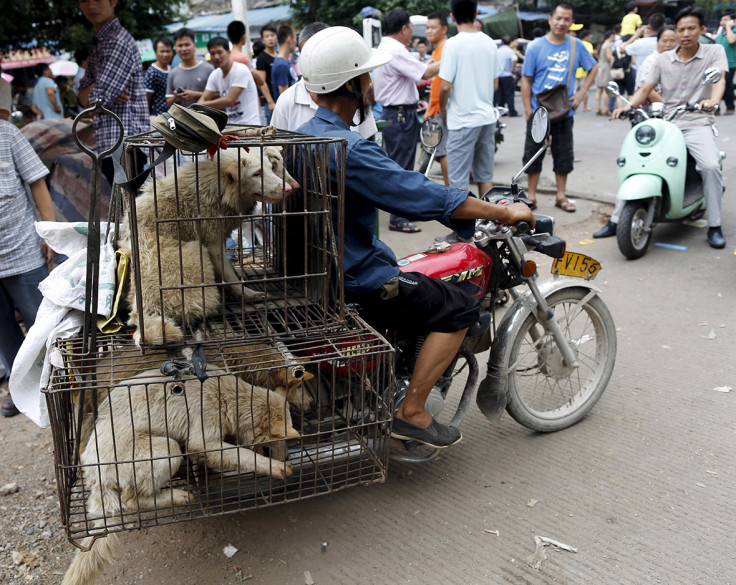
China has 662 sub-provincial cities, but the one that has acquired worldwide notoriety is Yulin, an otherwise obscure inland city with a population of half a million in south-west China's Guangxi Zhuang Autonomous Region.
In 2010, the local dog meat traders, backed by local officials, launched a "Dog Meat Festival" for the annual summer solstice. The festival was immediately condemned by the Chinese public.
China has some 130 million dogs, including a mix of urban pet dogs and rural guard dogs. To the country's expanding community of dog lovers, celebrating dog slaughter was an offensive provocation. Campaigns against the Yulin Dog Meat Festival were therefore first started by the Chinese themselves.
China's ties to the outside world have helped direct international criticism at the festival. If you conduct a Google image search on "Yulin," you will pull up tons of photos "celebrating" humans' gross inhumanity to dogs and cats in this place. To the startled online viewers, Yulin and, by extension, China are synonymous with backwardness, insensitivity and indifference. The cost to China's reputation because of Yulin is substantial.
In fact, as my recent trip to Yulin confirmed, mass dog and cat slaughter, mostly stolen pets, happens all year round in that city. Every morning, slaughter takes place inside marketplaces or in slaughterhouses. We saw crates of cats smashed down to the ground. A cat fetus was ejected from a crate due to the violent unloading.
To slaughter a dog, workers use iron tongs to pull the animal out by the neck. A metal or wooden stick is used to hit its head to stop it fighting. Then the worker cuts open the dog's throat to let out the blood. The dog is then thrown into a spinning de-hairing machine. The most brutal part of the slaughter is that killing is conducted in front of the terrified dogs who witness the entire process of a dog's brutal death, its disembowelment, cleaning and blowtorching.
These dogs had died mentally many times already
Dogs in two slaughterhouses were standing in the pools of blood from dogs slaughtered in front of them. But these dogs had died mentally many times already. They were uncharacteristically stoic, expressionless, and quiet when I approached them. Their quietness was thundering. They had been conquered psychologically after going through the torment of seeing other dogs brutally killed before their eyes.
I also saw dogs cuddling together behind a big barrel that blocked the view of the killers who were busy disemboweling and blowtorching the dead dogs. The slaughterers' lack of sensitivity to the feelings of the live dogs is shocking to behold. All slaughter operations are also inside residential areas, close to schools or inside busy marketplaces.
GALLERY: Yulin Dog Meat Festival (contains graphic images)
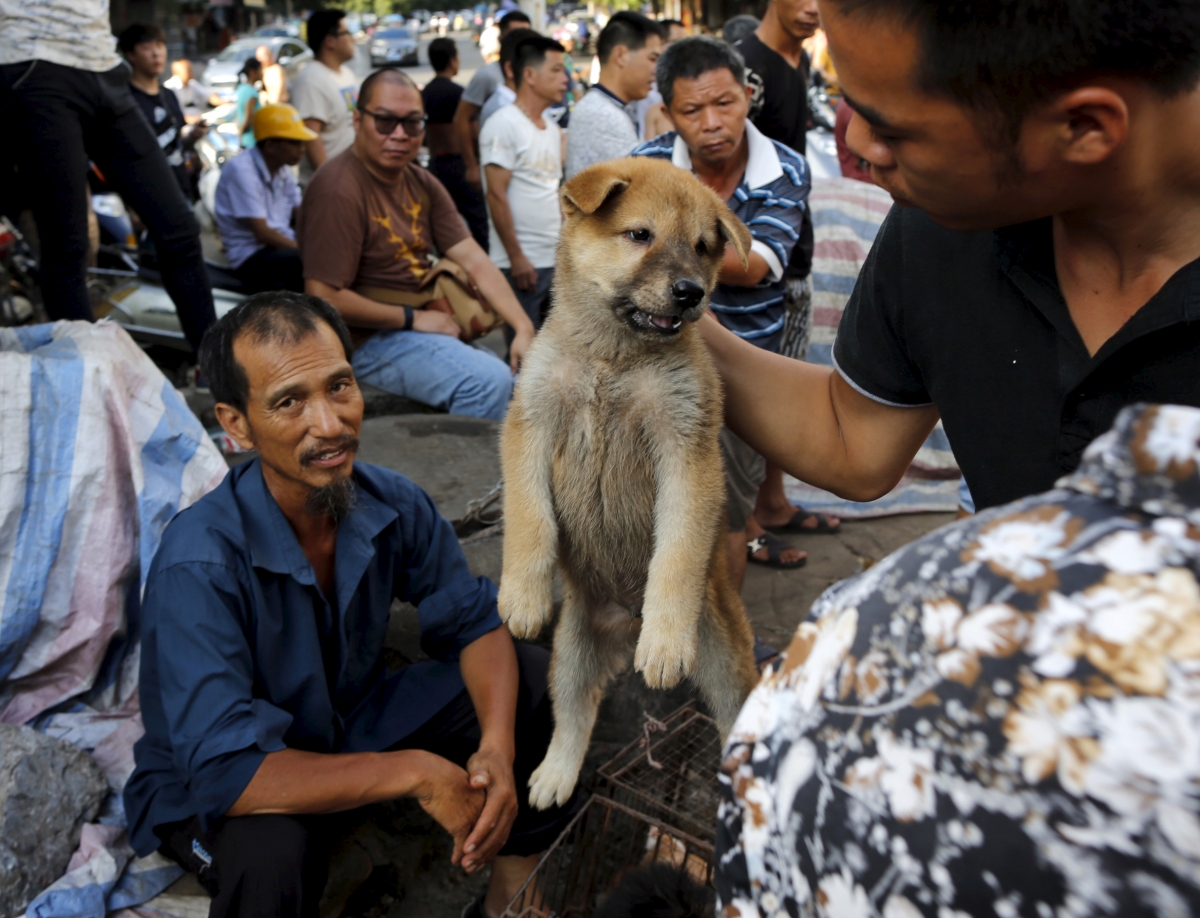

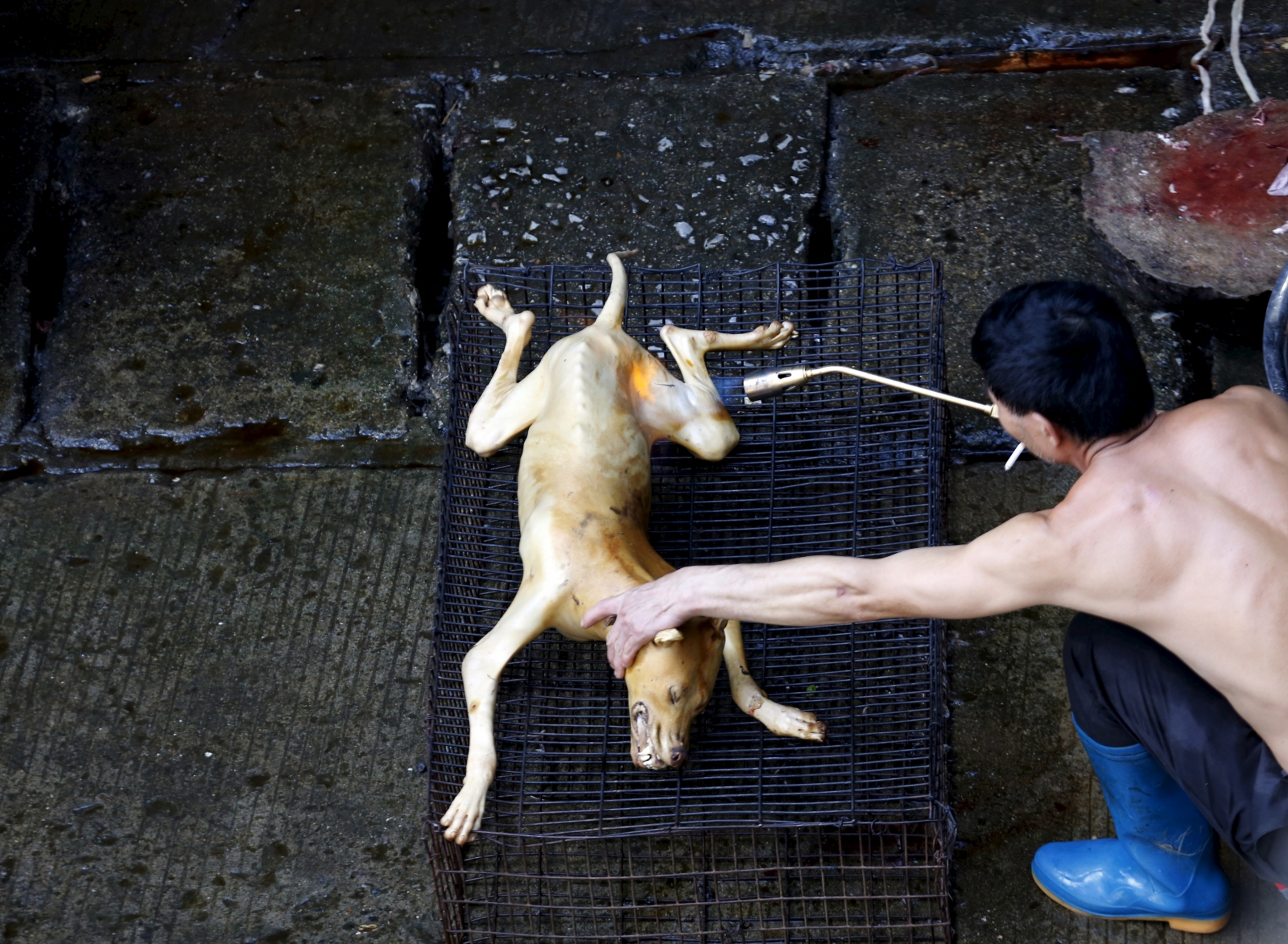

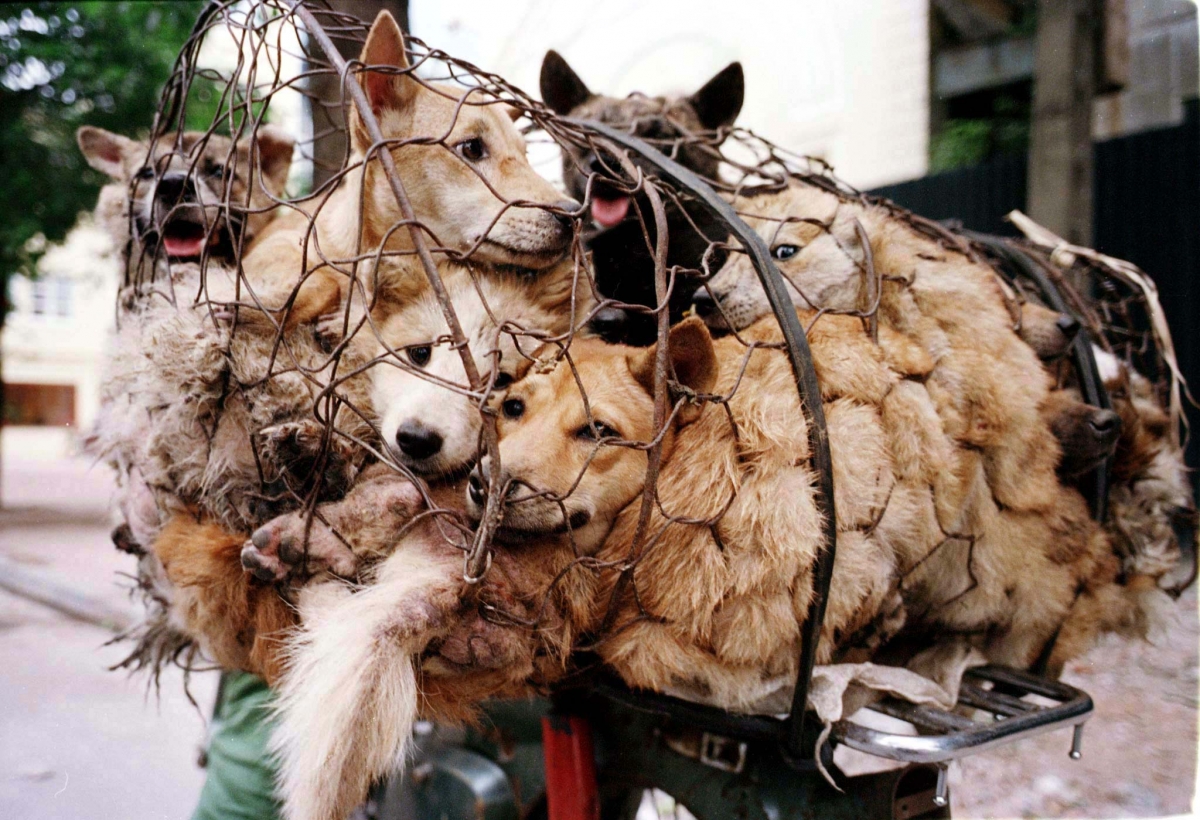
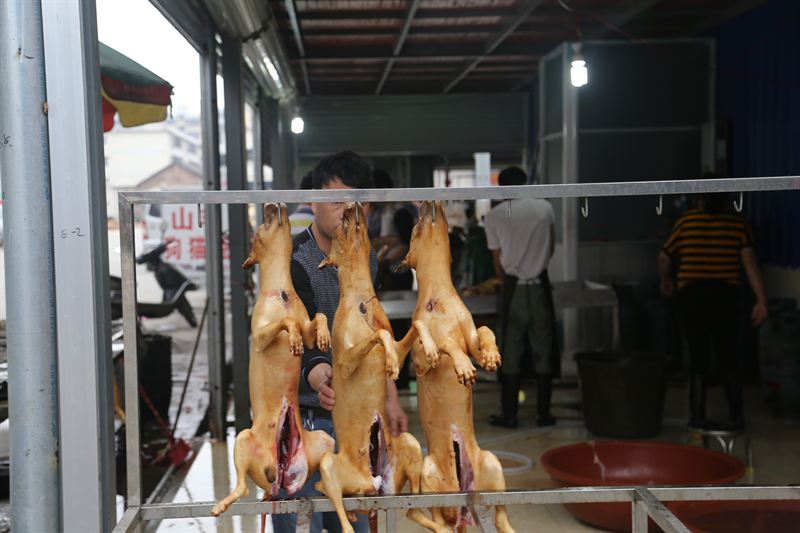
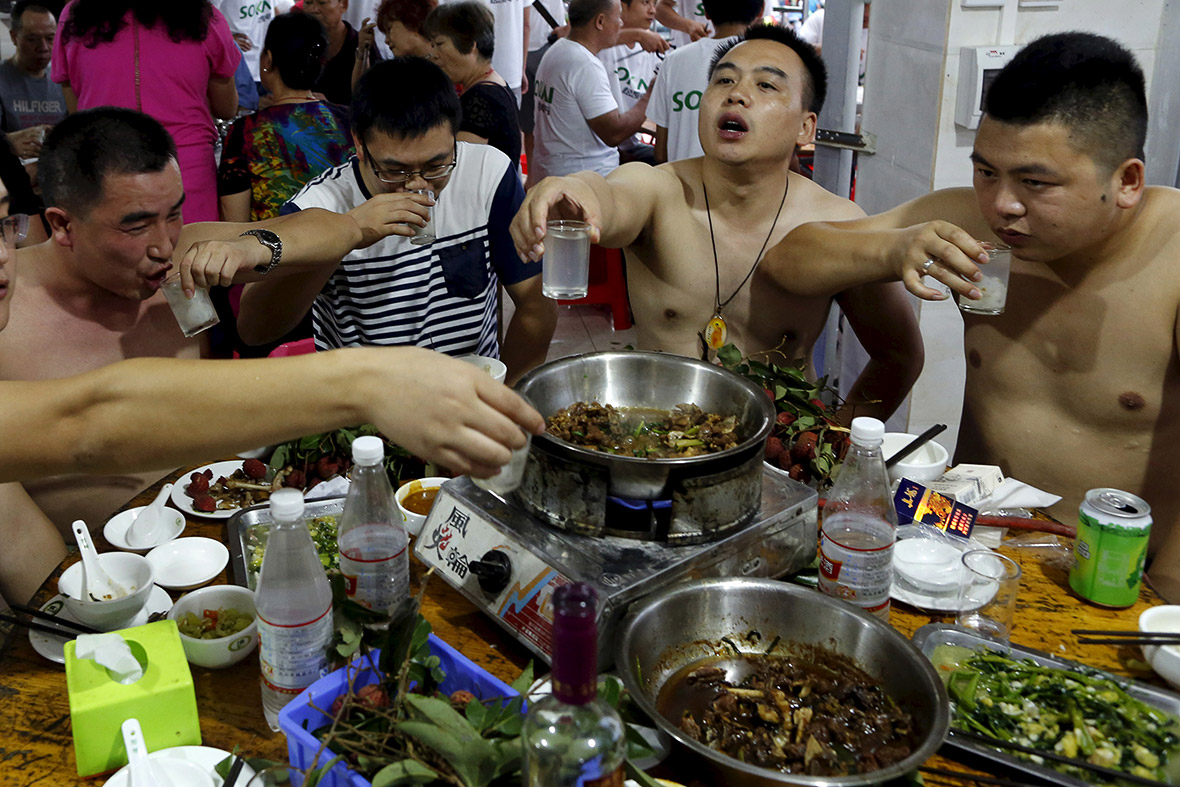

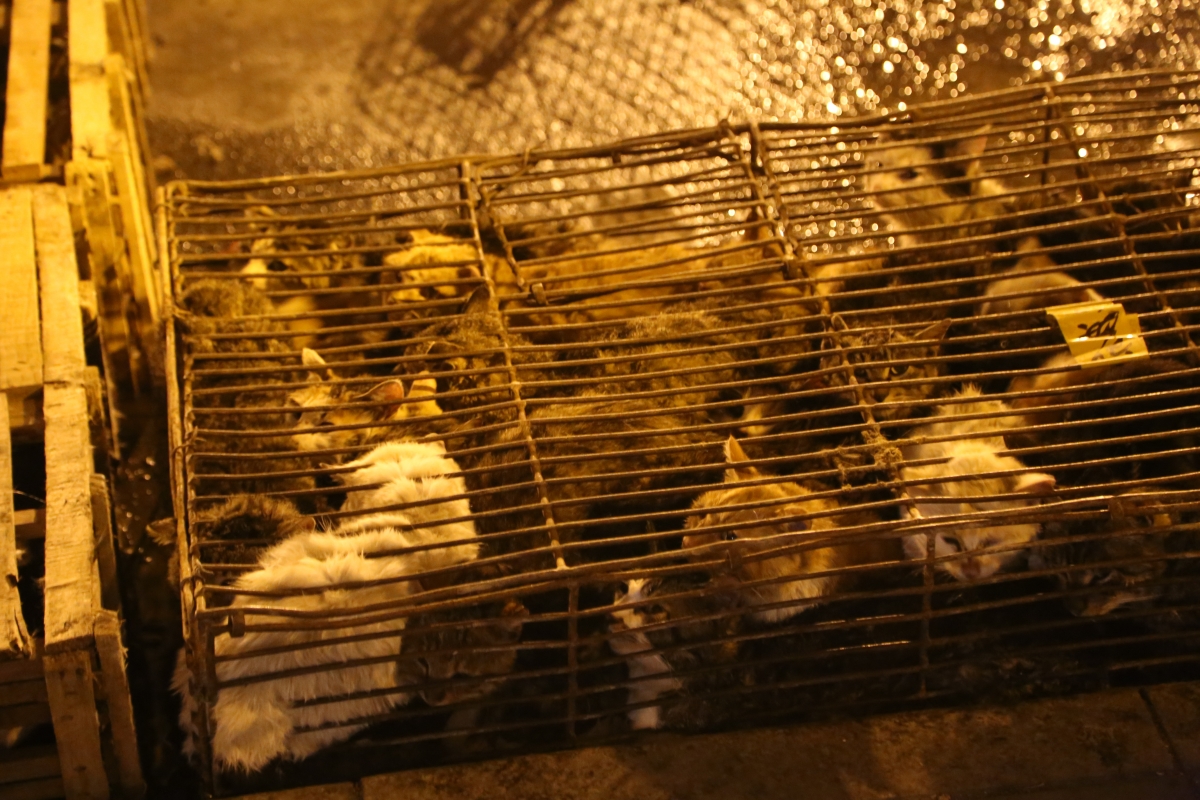
So are Chinese people culturally programmed to cruelty to animals? Does Chinese culture sanction this cruelty? The answer to both questions is a resounding no. Chinese Daoists and Buddhists consider killing the biggest sin. Chinese emperors tried twice to outlaw dog eating. The Tang Dynasty more than 1,000 years ago adopted livestock protection legislations. Vegetarianism, mercy release, and slaughter suspension were national policies in Tang Dynasty. Ancient Chinese scholar-officials wrote on compassion for other non-human lives.
In the 1930s, China established animal protection societies and adopted regulations against abuse of working animals. The country experienced a 27-year period (1949-1976) when pet keeping was rejected as "bourgeois lifestyle". The rise of the dog meat industry was however a result of the reform politics that was initially aimed at lifting the hundreds of millions of Chinese peasants out of abject poverty. It is time that China parts with the policy that judges the merits of an economic activity solely by its productivity.
The rise of the dog meat industry was a result of the reform politics that was initially aimed at lifting the hundreds of millions of Chinese peasants out of abject poverty.
Yulin does not represent the rest of the country. Even in Yulin, dog eating is not part of the mainstream local food culture. Like the rest of the country, dog meat is the food choice of a small number of consumers. Our survey in Yanji, an ethnic Korean city in north-east China, also confirmed the irreversible decline of dog eating in that city bordering North Korea. Since the end of China's Han Dynasty (221–207 BC), dog eating has long been rejected by the nation's elite as distasteful. There is no convincing evidence in China's dynastic past supporting the "traditional food" claim of the dog meat traders and their supporters.
China has a food culture composed of varieties of traditional foods such as moon cakes, dumplings, and Zong Zia (food made of glutinous rice wrapped in bamboo leaves for the Dragon Boat Festival). These are foods that are enjoyed by all and are placed on the dinner tables of state banquets. Dog meat, bear paws, pangolin meat, and fresh brains harvested from live monkeys are not "traditional foods" but a potential source of public health and environmental disasters.
The dog meat industry has also been implicated in a large number of cases involving dog theft, dog poisoning, violent confrontations (between dog thieves and dog owners) and death from consuming poisonous dog meat.
China does have laws and regulations that can deal with the various criminal acts. The country's youth protection law should have been used to outlaw public dog slaughter that traumatizes and desensitizes the nation's youngsters. The State Technical Guidelines for the Prevention and Control of Rabies should have been used to penalize traders who ship unvaccinated dogs across provincial boundaries. The country's Food Safety Law should have been a powerful weapon against the processing and sale of meat of dogs that died from poisoning, illnesses, and unknown causes. Finally, China's Criminal Law should have been used to crack down on the rampant dog thefts and other criminal acts.
The conflict over the Yulin Dog Meat Festival is symptomatic of a clash of cultures inside China, a clash between the urban and the rural value systems.
The conflict over the Yulin Dog Meat Festival is symptomatic of a clash of cultures inside China, a clash between the urban and the rural value systems. Having stepped into the rank of middle-income nations, China has also seen breathtaking urbanization sweeping across the continent-sized country. In 2015, more than half of China's 1.3 billion were city dwellers. The urban attitudes that see dogs as companions clash with the utilitarian outlook of the rural areas. Defenders of dog eating may not be dog eaters themselves, they fear further marginalization of the poor whose interests have long been made secondary to those of the urbanites.
Admittedly, China has a lot to do to protect the rural interest. Yet, promoting mass dog slaughter as a festival is no defence of the rural values. The dog trading profession was even rejected by the children of the dog meat traders. Our survey also confirmed that the majority of the rural residents are not dog eaters.
Since 2008, Beijing has spent hundreds of millions of dollars to project a positive image of China overseas. These include the Beijing Summer Olympics, the Shanghai Expo, 2020 Beijing Winter Olympics, and the 2011 and 2015 Time Square China National Image Advertisement. These efforts are certainly necessary, but not enough. And, they are hugely costly. I personal believe shutting down the Yulin Dog Meat Festival and closing Yulin's dog eating market can better enhance China's image. And, this will be cost-free.
Peter J. Li, Ph.D. is Associate Professor of East Asian Politics at the University of Houston-Downtown, and China Policy Adviser to Humane Society International
© Copyright IBTimes 2024. All rights reserved.






